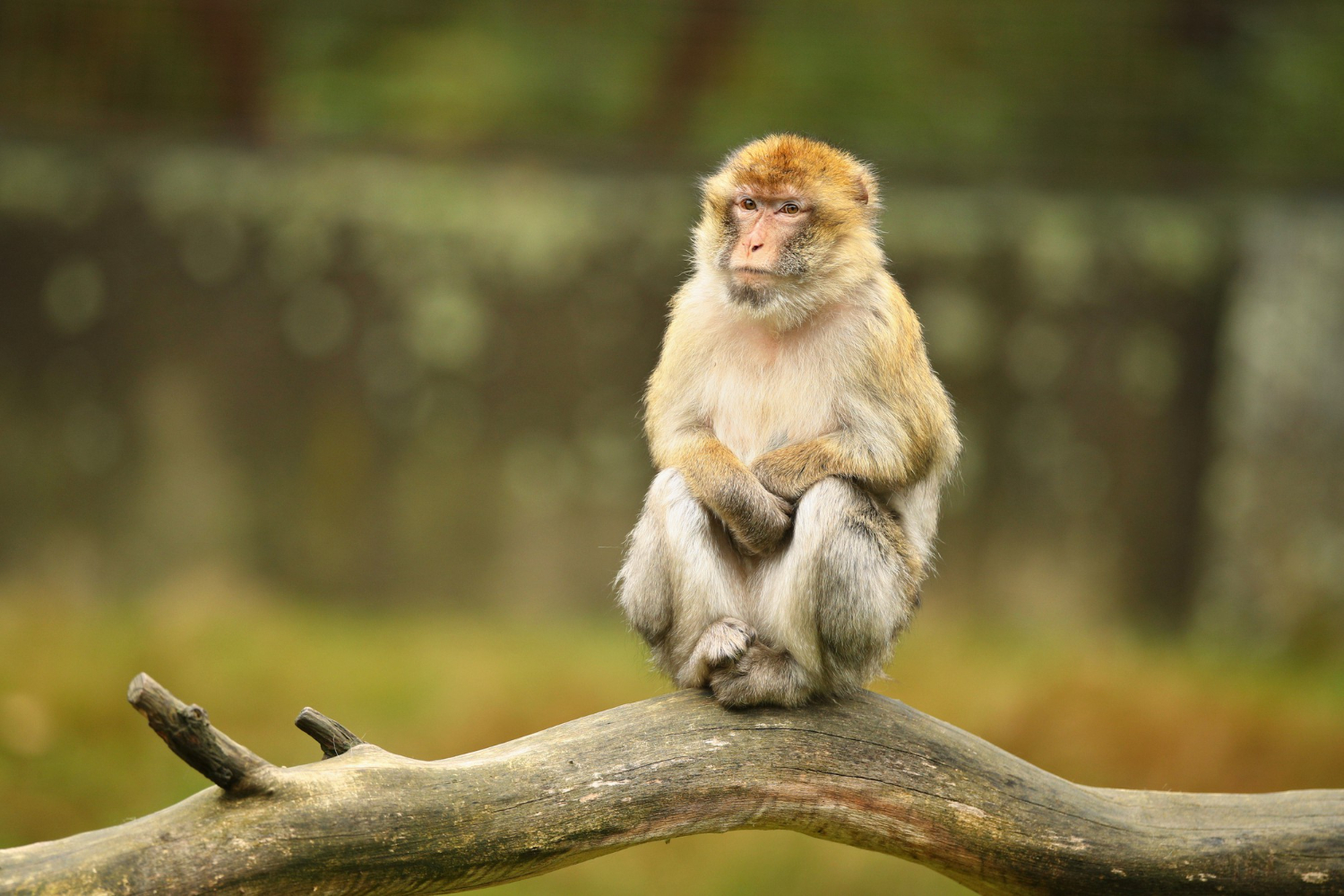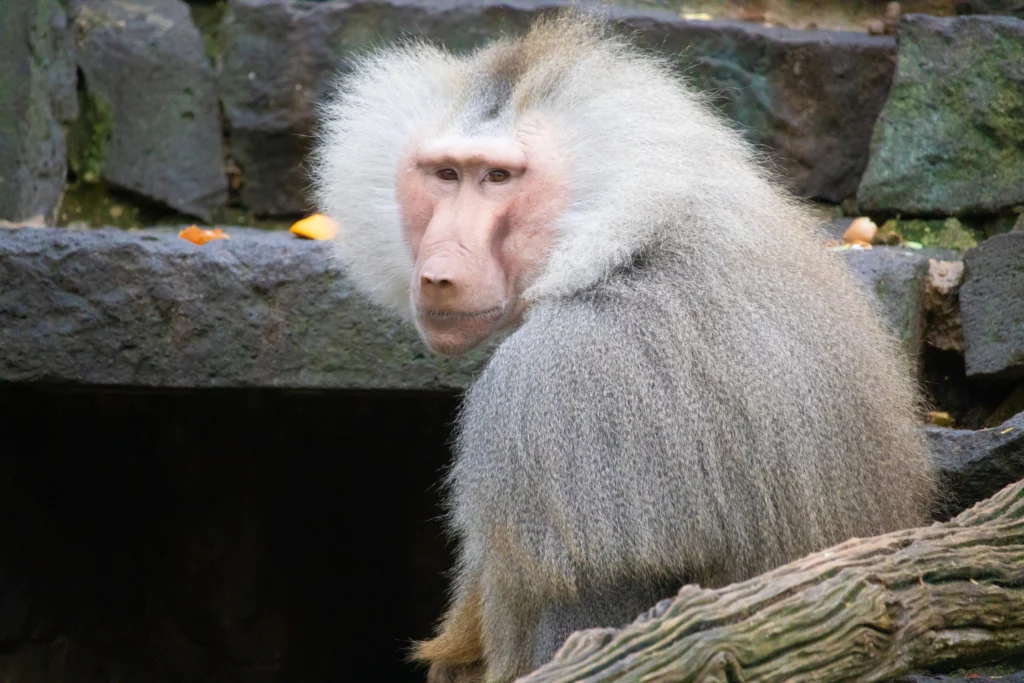Community
Chelsea Acton Famous Parenting: A Story of Affection and Intellectual

Introduction
Chelsea Acton Famous Parenting has inspired countless families, creating a legacy rich with love and valuable lessons. Her methods resonate because they blend compassion with practicality, ensuring children thrive emotionally and intellectually. This article explores Chelsea Acton’s renowned parenting style, offering insights into why it has become a beacon for modern parents.
The Foundation of Chelsea Acton’s Parenting Philosophy
Love as the Core Principle
Chelsea Acton Famous Parenting, believes that love is the foundation of effective parenting. She emphasizes that children thrive best in environments where they feel unconditionally loved. Love, in her view, is not just about affection but also about understanding and meeting a child’s emotional needs.
The Importance of Consistency in Parenting
Consistency is key in Acton’s parenting approach. She stresses that consistent rules and routines help children feel secure and understand expectations. This consistency does not imply rigidity but rather a stable framework within which children can grow.
Balancing Discipline with Compassion
Acton’s parenting style is characterized by a balanced approach to discipline. She advocates for setting clear boundaries while also being empathetic to a child’s feelings. Her methods aim to teach responsibility without causing emotional distress.
Chelsea Acton’s Approach to Emotional Intelligence
Teaching Emotional Awareness
Chelsea Acton places a strong emphasis on emotional intelligence. She believes that teaching children to recognize and express their emotions is crucial for their development. This emotional awareness helps children navigate relationships and challenges more effectively.
Encouraging Open Communication
Open communication is a cornerstone of Acton’s parenting style. She encourages parents to listen actively and validate their children’s feelings. This approach fosters trust and strengthens the parent-child bond, allowing for more meaningful interactions.
Building Resilience in Children
Acton advocates for nurturing resilience in children. She teaches that it is essential for kids to learn how to cope with failure and disappointment. By providing support during tough times, parents can help their children develop the strength to overcome challenges.
Educational Values in Chelsea Acton’s Parenting
Fostering a Love for Learning
Chelsea Acton promotes a love for learning by integrating education into everyday life. She believes that learning should be an enjoyable and continuous process. Acton encourages parents to create an environment where curiosity is celebrated, and questions are welcomed.
Supporting Individual Interests
Acton’s parenting approach respects the individuality of each child. She advises parents to support their children’s unique interests and talents, even if they differ from traditional paths. This support helps children develop confidence in their abilities and pursue their passions.
Encouraging Critical Thinking
Critical thinking is another key aspect of Acton’s educational philosophy. She teaches parents to encourage their children to think independently and question the world around them. This approach not only enhances intellectual growth but also prepares children for the complexities of life.
Promoting Healthy Social Skills
Teaching Empathy and Kindness
Chelsea Acton Famous Parenting believes that empathy and kindness are essential social skills. She encourages parents to model these behaviors and teach their children to consider others’ feelings. Acton’s methods help children develop strong, healthy relationships based on mutual respect.
Navigating Peer Relationships
Acton provides guidance on helping children navigate peer relationships. She emphasizes the importance of teaching kids how to handle conflicts, build friendships, and understand social dynamics. Her approach helps children become socially competent and confident.
The Role of Play in Social Development
Play is a vital part of social development in Acton’s parenting philosophy. She encourages parents to allow children plenty of unstructured playtime, where they can explore social roles, learn cooperation, and practice communication. Play is seen as a powerful tool for learning and growth.
Chelsea Acton’s Tips for Managing Parental Stress
The Importance of Self-Care for Parents
Chelsea Acton recognizes that parenting can be stressful and advocates for self-care. She stresses that parents need to take care of their own mental and physical health to be effective caregivers. This self-care is not a luxury but a necessity for maintaining a healthy family dynamic.
Time Management Strategies for Busy Parents
Acton offers practical time management strategies for parents juggling multiple responsibilities. She suggests prioritizing tasks, delegating when possible, and creating a balanced schedule that includes family time. Effective time management helps reduce stress and allows parents to be more present with their children.
Building a Support System
Chelsea Acton emphasizes the importance of building a strong support system. She advises parents to seek out friends, family, and community resources that can offer help and advice. A supportive network provides emotional backing and practical assistance, making the parenting journey smoother.
The Impact of Chelsea Acton’s Parenting Methods on Modern Families
Creating a Positive Family Culture
Families who adopt Chelsea Acton’s methods often report a more positive and cohesive family culture. Her emphasis on love, communication, and education fosters an environment where each family member feels valued and supported. This positive atmosphere leads to happier and more well-adjusted children.
Long-Term Benefits for Children
Children raised with Acton’s parenting principles tend to develop strong emotional intelligence, resilience, and a love for learning. These traits are crucial for success in adulthood, both personally and professionally. Acton’s legacy is seen in the well-rounded and capable adults her methods produce.
Why Chelsea Acton’s Parenting Philosophy Endures
Chelsea Acton’s parenting philosophy endures because it addresses the fundamental needs of children and parents alike. Her approach is flexible, adaptable, and rooted in timeless values that transcend trends. Acton’s methods offer a practical blueprint for raising happy, healthy, and successful children.
Conclusion
Chelsea Acton Famous Parenting style is a testament to the power of love, consistency, and emotional intelligence. Her legacy continues to inspire parents around the world, offering timeless lessons that resonate across generations. By adopting her principles, parents can build strong, loving families and prepare their children for a bright future.
Community
Albino Monkey: Nature’s Rare Wonder in Danger

Introduction
Have you ever seen a white monkey with purple eyes and questioned how it got here to be? That rare sight might be an albino monkey, a creature as captivating as it is inclined. These monkeys aren’t simply pale animals; they constitute an unusual genetic circumstance known as albinism, which influences their complete existence. From how they appear to how they continue to exist, albino monkeys lead particular lives full of demanding situations.
Their snowy coats may lead them to seem magical, but their lifestyles are far from smooth for them. This article dives deep into the genetics, way of life, and threats confronted by these rare beings. We’ll discover the whole thing about albino monkeys, from their start to how they cope in the wild and in captivity. If you’re geared up to learn extra approximately those rare primates, let’s swing into it!
Understanding Albinism in Monkeys
Albinism is an extraordinary genetic circumstance in which the frame cannot produce melanin, the pigment for color and safety. In monkeys, this situation ends in light or white fur, crimson eyes, and extended sensitivity to daylight. Think of melanin like an umbrella for his or her skin and eyes—without it, they’re left prone. This loss of safety makes albino monkeys vulnerable to numerous environmental threats.

The Genetics of Albinism in Monkeys
Albinism occurs because of a mutation in genes that manipulate melanin manufacturing, frequently passed down via recessive inheritance. For an albino monkey to be born, each dad and mom must bring this uncommon genetic mutation. It’s like flipping a coin twice and getting heads both instances—rare, however possible. These genetic anomalies may be detected via DNA checking out in controlled environments.
Species of Albino Monkeys
Albinism is not constrained to one monkey species; it’s been located in capuchins, macaques, baboons, and even howler monkeys. However, recognizing one in the wild is like locating a white tiger—extremely uncommon and awe-inspiring. Because the circumstance is unusual, most of what we realize comes from sightings in zoos or sanctuaries, where albino monkeys are studied closely.
The Life of Albino Monkeys in the Wild
Living inside the wild isn’t clean for any monkey, but for albino monkeys, it’s an uphill climb each day. Their light look makes them stand out, making them easy objectives for predators and even rival monkey troops. Imagine sporting a glowing shape in a darkish jungle—camouflage is now not your friend. This visibility influences their potential to hide, hunt, and even socialize.
Common Challenges Faced by using Albino Monkeys
Without melanin, their eyes are touchy to sunlight, making imaginative and prescient problematic in the course of the day. Their skin burns without difficulty, and they may be at a greater danger of skin diseases, including cancer. Other monkeys every so often shun or keep away from them because of their appearance, causing social isolation. This rejection affects their mental fitness and survival chances in social troop dynamics.
Albino Monkeys in Captivity
In captivity, albino monkeys enjoy better safety from environmental threats but face distinct struggles. They may be afflicted by pressure due to consistent remark or improper lighting. However, caretakers often offer shaded areas, gentle lighting fixtures, and medical care to make sure of a comfortable lifestyle. Captivity additionally permits scientists to examine and understand albinism extra deeply, assisting conservation efforts.
Conservation Efforts and Awareness
Conservationists are increasingly focusing on shielding genetically rare animals, inclusive of albino monkeys. Breeding applications, schooling campaigns, and habitat protection help enhance recognition of their plight. Think of conservation as creating a safety net for those rare lives, ensuring they don’t disappear quietly. These efforts depend on each worldwide task and nearby involvement for maximum effect.
The Role of Zoos and Sanctuaries
Many zoos and sanctuaries now provide specialized enclosures tailor-made to the desires of albino monkeys. These places serve not just as homes but additionally as instructional centers in which trafficked people find out about the demanding situations of albinism. It’s like building a customized rental with all of the proper filters, sunshades, and supports to meet their unique needs.
Public Perception and Cultural Views
In a few cultures, albino animals, consisting of monkeys, are seen as sacred or magical. In others, they are probably feared or misunderstood. These beliefs affect how groups deal with them—once in a while with reverence, every now and then with cruelty. Education can help update worry with information and inspire protection over persecution.
Why Do People Harm or Hunt Albino Monkeys?
Some poachers target albino monkeys for their rarity, wondering if they bring about correct luck or own magical powers. Others hunt them simply due to the fact they’re simpler to identify. Superstitions and lack of information gas this cruelty. Combating these moves requires robust criminal safety and extensive public schooling campaigns that debunk harmful myths.
How Can You Help Save Albino Monkeys?
You don’t need to be a scientist to make a difference. Supporting flora and fauna foundations, spreading attention, and adopting moral zoo practices assist drastically. You also can write about albino monkeys, share documentaries, or fundraise for sanctuaries. Every small movement, like planting a seed, contributes to a growing forest of help and survival.
Myths and Misconceptions About Albinism
One not unusual fantasy is that albino animals are blind. While they have imaginative and prescient issues, they’re no longer absolutely blind. Another is that albinism is contagious—it actually isn’t. Some even accept as true that they’re cursed or evil. These misconceptions lead to needless worry and cruelty. The truth is, albino monkeys are absolutely uncommon and beautiful parts of nature.
Albino Animals Across the Animal Kingdom
Albinism traits appear in lots of animals—deer, snakes, peacocks, or even dolphins. Each faces comparable struggles: extended visibility, vulnerability, and fitness dangers. Studying them facilitates our recognizing nature’s genetic quirks better and fosters compassion for all residing beings. Their forte adds a mystical brushstroke to our world’s biodiversity.
Future Outlook for Albino Monkeys
With increasing focus and conservation, there’s hope for the future of albino monkeys. Technology now permits better tracking and gene research. If we maintain pushing ahead with legal guidelines and education, the following technology may also grow up with a deeper appreciation for these creatures. They’re now not just uncommon—they’re reminders of nature’s unpredictability and resilience.
Conclusion
Albino monkeys are more than just white-furred curiosities. They are dwelling beings dealing with day-to-day struggles because of a rare genetic trait. Their lives inform testimonies of resilience, version, and survival in a global that isn’t always type to the one-of-a-kind. With proper cognizance and collective motion, we can make sure those unique primates don’t fade into extinction. Let’s no longer allow their light colors to emerge as an image of a vanishing wish.
FAQs
Are albino monkeys also white?
Yes, albino monkeys normally have white or faded fur, red eyes, and lighter skin due to the absence of melanin.
Are there different types of albinism?
Yes, there are types like oculocutaneous albinism and ocular albinism, affecting exclusive body components and pigmentation degrees.
Are there any problems related to albinism?
Albino monkeys regularly suffer from vision troubles, sun sensitivity, social isolation, and an accelerated chance of pores and skin situations.
Are there albino people?
Absolutely, albinism affects humans too, with similar characteristics—mild skin, hair, and eye coloration—at the side of solar sensitivity.
Why are albino monkeys born with this situation?
They inherit it genetically. Both parents need to deliver the mutated gene for their offspring to be born with albinism.
Community
Exploring Bongo Stays DAAEK5025BTO9ZF San Antonio TX US: A Comprehensive Guide

When making plans a go to to San Antonio, Texas, one might come across various alternatives for hotels, and among these options, one name sticks out: Bongo Stays DAAEK5025BTO9ZF San Antonio TX US. This precise vacation spot gives a mix of comfort, convenience, and a one of a kind experience for vacationers seeking extra than just an area to live. In this article, we are able to dive into what makes Bongo Stays DAAEK5025BTO9ZF San Antonio TX US such an fascinating and attractive desire for visitors to the colorful metropolis of San Antonio.
Introduction to Bongo Stays DAAEK5025BTO9ZF San Antonio TX US
San Antonio, acknowledged for its rich cultural history, ancient landmarks, and vibrant ecosystem, attracts millions of site visitors each 12 months. Among the numerous accommodations available, Bongo Stays DAAEK5025BTO9ZF San Antonio TX US has garnered interest due to its unique offering. Whether you’re touring for a brief ride or an extended stay, the enjoy at Bongo Stays is one which guarantees to be each memorable and handy.
The name itself, Bongo Stays DAAEK5025BTO9ZF San Antonio TX US, may additionally boost a few interest, however it reflects the logo’s dedication to providing a customized and particular lodging experience. For the ones looking for extra than a normal resort stay, Bongo Stays DAAEK5025BTO9ZF San Antonio TX US provides an innovative solution designed to cater to each quick-time period visitors and longer-term guests.
The Unique Features of Bongo Stays DAAEK5025BTO9ZF San Antonio TX US
At the coronary heart of Bongo Stays DAAEK5025BTO9ZF San Antonio TX US is a commitment to blending consolation with technology. The resorts are designed with modern travelers in thoughts, providing spacious rooms, pinnacle-notch amenities, and quite a few handy capabilities that make sure a pressure-unfastened live.
What sets Bongo Stays DAAEK5025BTO9ZF San Antonio TX US other than the competition is the emphasis on customer pride and customized carrier. With a team devoted to growing a welcoming and comfortable surroundings, every guest seems like a part of the Bongo Stays circle of relatives. The rooms are properly-prepared with the contemporary technologies, offering high-velocity internet, clever TVs, and other conveniences that travelers assume in trendy virtual age.
The vicinity of Bongo Stays DAAEK5025BTO9ZF San Antonio TX US is likewise a prime draw. Situated in the heart of San Antonio, guests are just minutes far from the metropolis’s maximum famous attractions, together with the Alamo, the San Antonio River Walk, and the colourful downtown vicinity. This vital location ensures that visitors have smooth get entry to to the metropolis’s various eating alternatives, cultural reviews, and entertainment venues.
Comfort and Convenience at Bongo Stays DAAEK5025BTO9ZF San Antonio TX US
When it involves inns, comfort is key, and Bongo Stays DAAEK5025BTO9ZF San Antonio TX US offers on that promise. Each room is designed with comfort in thoughts, proposing plush bedding, spacious layouts, and a calming environment. Whether you are traveling by myself, with circle of relatives, or with a collection, the rooms are flexible and can accommodate various desires.
In addition to the nicely-designed rooms, Bongo Stays DAAEK5025BTO9ZF San Antonio TX US offers a number facilities that further beautify the comfort of its visitors. The belongings consists of a fully geared up gymnasium, a relaxing lounge region, and even a commercial enterprise center for folks that want to live productive throughout their live. Additionally, the concierge provider is continually available to assist with any special requests or to provide recommendations for exploring the city.
One of the important thing elements of Bongo Stays DAAEK5025BTO9ZF San Antonio TX US is the seamless mixture of modernity and way of life. While the belongings boasts all the contemporary amenities you will count on from a high-give up status quo, it additionally consists of factors of San Antonio’s cultural and ancient importance. This creates a exclusive ecosystem wherein visitors can sense both at home and related to the nearby tradition.
Exploring San Antonio from Bongo Stays DAAEK5025BTO9ZF San Antonio TX US
San Antonio is a metropolis rich in records, and when staying at Bongo Stays DAAEK5025BTO9ZF San Antonio TX US, you’re perfectly located to explore all that the metropolis has to offer. The Alamo, one of the most full-size historical websites within the United States, is positioned just a brief distance away. Visitors can learn about the Battle of the Alamo and the Texas Revolution whilst exploring the website online’s captivating museum and famous.
Beyond the Alamo, the San Antonio River Walk is any other must-see attraction. Stretching over 15 miles, the River Walk offers a peaceful and scenic setting for a leisurely walk. Guests at Bongo Stays DAAEK5025BTO9ZF San Antonio TX US can easily access the River Walk and experience its kind of shops, restaurants, and out of doors areas.
For the ones interested in cultural reviews, San Antonio is home to severa museums, galleries, and theaters. The San Antonio Museum of Art and the McNay Art Museum are only a short power away, presenting a risk to immerse yourself inside the city’s vibrant artwork scene. Additionally, San Antonio’s wealthy Mexican history is well known via numerous gala’s and occasions in the course of the 12 months, which include the well-known Fiesta San Antonio.
The Community and Local Engagement at Bongo Stays DAAEK5025BTO9ZF San Antonio TX US
One of the particular functions of Bongo Stays DAAEK5025BTO9ZF San Antonio TX US is its emphasis on community engagement and supporting neighborhood organizations. As a guest at Bongo Stays, you’re endorsed to explore and interact with the area people, whether or not thru eating at nearby own family-owned restaurants, attending cultural events, or buying at local artisan markets.
Bongo Stays partners with a number of nearby companies and initiatives to help guests revel in the pleasant of San Antonio. Whether it’s a guided excursion of the city, a cooking class focused on Tex-Mex delicacies, or a cultural overall performance, Bongo Stays DAAEK5025BTO9ZF San Antonio TX US helps guests create significant connections with the city’s vibrant lifestyle.
This experience of community extends to the resort’s personnel as well. The crew at Bongo Stays DAAEK5025BTO9ZF San Antonio TX US is dedicated to growing a welcoming and inclusive environment. Whether you’re a first-time tourist to San Antonio or a returning visitor, the group of workers is usually available to offer suggestions, share insider pointers, or virtually chat approximately the pleasant locations to go to inside the metropolis.
Sustainability Efforts at Bongo Stays DAAEK5025BTO9ZF San Antonio TX US
As sustainability will become an an increasing number of vital attention for tourists, Bongo Stays DAAEK5025BTO9ZF San Antonio TX US has made sizeable strides in adopting green practices. From strength-efficient lighting and water-saving furniture to the use of environmentally friendly cleaning merchandise, the belongings is dedicated to decreasing its environmental impact.
In addition to the resort’s internal sustainability efforts, Bongo Stays DAAEK5025BTO9ZF San Antonio TX US encourages visitors to be greater mindful of their environmental footprint for the duration of their live. The hotel presents data on neighborhood sustainability tasks and gives pointers on the way to reduce waste even as visiting.
For guests trying to offset their carbon footprint, Bongo Stays DAAEK5025BTO9ZF San Antonio TX US also companions with local organizations that focus on environmental conservation and sustainability efforts. By supporting these projects, visitors can sense excellent approximately their live and their effect on the environment.
Booking and Availability at Bongo Stays DAAEK5025BTO9ZF San Antonio TX US
For those interested in booking a stay at Bongo Stays DAAEK5025BTO9ZF San Antonio TX US, the method is easy and consumer-pleasant. Guests can without problems check availability and make reservations online thru the property’s authentic internet site or via 1/3-birthday celebration booking structures. With a lot of room alternatives to choose from, travelers can select the accommodation that satisfactory suits their wishes and finances.
Whether you are reserving a weekend getaway or an extended live, Bongo Stays DAAEK5025BTO9ZF San Antonio TX US gives a seamless experience from begin to finish. The website additionally capabilities useful statistics about the belongings, services, and nearby points of interest, allowing visitors to devise their experience readily.
Conclusion: Why Choose Bongo Stays DAAEK5025BTO9ZF San Antonio TX US
In end, Bongo Stays DAAEK5025BTO9ZF San Antonio TX US is a standout option for all people journeying San Antonio. With its mixture of consolation, comfort, and personalized provider, it offers a completely unique revel in that goes past the everyday lodge live. Whether you’re in town for business, leisure, or a aggregate of each, Bongo Stays DAAEK5025BTO9ZF San Antonio TX US guarantees a memorable and enjoyable revel in that captures the essence of San Antonio’s allure and hospitality.
Community
Divijos Unleashed: A Look at Its Distinct Qualities

Divijos are one-of-a-kind beings with interesting personalities and traits. Divijos has cultural importance, so let’s look into its meaning, history, and roots.
What is Divijos and Where Did It Come From?
The fantastical creatures known as Divijos have long fascinated people from all walks of life. Legends and folklore abound about these mysterious creatures, but no one knows for sure where they came from. “Divijos” means “mysterious beings” in a loose translation from an ancient civilization’s language.
In popular culture, these monsters are frequently portrayed as otherworldly beings with special powers and unusual appearance. Despite the lack of evidence for their existence, Divijos play a substantial role in the mythology and folklore of numerous cultures.
The Divijos as a Cultural Icon
Throughout history, Divijos have been an integral part of many cultures’ cultural tapestry. As representations of enlightenment, magic, and protection, they are frequently adored. Throughout history, stories and mythology have featured these fantastical creatures.
Good fortune and blessings are thought to follow Divijos sightings in certain societies. They have the ability to mend and reestablish harmony in the natural environment, and they are revered as protectors of nature. The cultural impact of Divijos demonstrates how mythology and the human curiosity about the unknown can endure.
We can learn more about these fantastical beings by investigating their cultural relevance and where they came from. Delving into their distinct traits deepens our comprehension of their function across diverse cultures and bolsters the everlasting influence of folklore and mythology. Check out our related articles on divijos meaning, divijos pronunciation, and divijos history to learn more about the definition, pronunciation, and history of the word.
Divijos’ Distinct Qualities
Divijos are interesting animals because of all the ways in which they differ from other species. More specifically, let’s look at how they seem, what they act like, and how they connect with others.
The Outward Look
Divijos are visually prominent and easily recognizable. Covered in dense fur or feathers, its compact body form varies by species. Divijos communicate and identify themselves by their colorful array of colors. Habitat and evolutionary adaptations may determine the specific Physical Appearance. See our article on the meaning of divijos for a full description of the fish’s appearance. The article delves into many species and their distinct characteristics.
Personality Attributes
The fascinating behavioral features displayed by Divijos let them adapt to their unique settings and survive. Some examples of these characteristics are ways of foraging, hunting, mating, and defending one’s territory. The evolutionary background and ecological niche of a certain divijos species determines the behavioral traits the species exhibits.
The article about the divijos’ origins explains how these characteristics have changed through the years and helped the species stay alive.
Relationship Building
Part of what makes divijos life tick is the importance of social interactions. Divijos can exhibit solitary behavior, pair bonding, or complex social groupings; the specifics vary from species to species. The ability to communicate, work together, and share resources depends on these social connections.
Learn more about the social dynamics of divijos by reading our essay about its history. It sheds light on how social relationships have changed throughout time and how it has affected the tactics used by the species to stay alive. If you want to know how important divijos are to ecosystems and how they affect local communities, you need to know what makes them distinctive. To make sure these incredible animals are around for decades to come, we need to study and protect them.
Grasping Divijos’ Function
Both the habitats in which divijos live and the communities in which they are found are greatly influenced by these animals. So, let’s take a look at how they impact local ecosystems and how people live there.
Support for Natural Environments
The ecological roles played by divijos are well-known and might differ from one habitat and species to another. These organisms frequently serve an essential role in preserving ecological harmony. Divijos have made several important contributions to ecosystems, including:
Pollination
pollination is an essential function performed by several divijos species, including the vibrant nectar-feeding divijos. They help many different kinds of plants reproduce by going from flower to bloom and transferring pollen. This procedure guarantees that the ecosystem’s flora will produce fruits, seeds, and a wide variety of plants.
Seed Dispersal
Divijos, especially those that feed on fruits or seeds, help spread seeds. They unwittingly disperse seeds to new areas as they ingest fruits or carry them in their digestive systems. This adds to the ecosystem’s richness and aids plant species in colonizing new places.
Predator-Prey Interactions
Interactions between predators and prey: Divijos are found in many food systems, playing the role of both. The divijos’ ability to manage its population by eating insects and smaller animals helps keep ecosystems in check. Another important role the divijos play in their environment is as prey for bigger predators.
Repercussions for Neighborhoods
Direct and indirect effects of divijos on local communities are substantial. Financial, social, and even spiritual aspects can all be affected. Some ways divijos affect locals’ daily lives are as follows:
Popularity of Divijos
Divijos are a popular attraction for sightseers and Eco tourists in areas where they are rare or plentiful. Contributing to local economies through ecotourism and recreational activities like birdwatching or divijos-watching, visitors travel to examine and study these critters.
Cultural Values
Divijos are respected as symbols of spirituality, strength, and beauty in many communities, which gives them cultural significance. Traditional traditions, artwork, and folklore all feature them. Divijos play an important role in local culture, assisting in the transmission and maintenance of traditional wisdom and morals.
The Ecosystem Services
Divijos play an important role in maintaining healthy ecosystems, which in turn benefit local populations. Among these benefits include pollination, which helps farmers out with crop yields, and natural insect control, which lessens the load on pesticides. The overall well-being and productivity of the ecosystem are supported by divijo populations that are in good health.
Recognizing the significance of divijos in ecosystems and the ways they affect local communities underscores the need to protect them. The divijos continued value to ecosystems and human cultures depends on our ability to protect their numbers and the places they call home. See our articles on divijos meaning and divijos origin for more information about the origin and meaning of the word.
Divijos Conservation Initiatives
It is crucial to be aware of the conservation efforts being made to safeguard divijos populations because of the unique qualities that make these birds so interesting. The existence of divijos is highly dependent on conservation measures and techniques, as they are increasingly threatened.
Divijos Dangers
The Divijos people are in danger due to the many dangers they confront. Pollution, illegal wildlife trading, habitat loss, and climate change are among the main risks. The fragmentation and loss of appropriate habitats for divijos are consequences of the degradation of their native habitats caused by human activities like as deforestation, urbanization, and agricultural expansion. Their habitats can be contaminated by pollution from different sources, including agricultural runoff and industrial waste, which can influence their health and reproductive performance. As a result of changes to the ecosystems upon which their survival depends, divijos face new and more formidable threats from climate change. Their habitats and the availability of food and mates are vulnerable to changes in weather patterns, including changes in temperature and precipitation as well as sea level rise. Also, as divijos habitats get more and more fragmented and resources becoming scarcer, the divijos may be more exposed to diseases and predators.
Divijos are also endangered due to the illegal wildlife trade. Divijos are frequently hunted for their fur, various body parts, or kept as exotic pets because of their distinctive features. Decreases in population and disturbances to ecological balance are possible outcomes of this kind of exploitation.
Programs and Approaches to Environmental Protection
A number of conservation projects and methods have been put in place to safeguard divijos habitats, increase public awareness of the species, and guarantee the divijos’ continued existence in the face of the challenges they confront.
Saving Ecosystem: One way to protect divijos ecosystems from human-caused destruction is to create protected places like wildlife reserves and national parks. Not only do these reserves safeguard divijos populations, but they also sustain a wide variety of plant and animal life.
Habitat Restoration: In order to ensure that divijos can continue to thrive, restoration initiatives aim to restore damaged habitats. To achieve this goal, it may be necessary to replant trees, restore wetlands, or eradicate exotic species that pose a threat to divijos’ food and habitat.
Research and Monitoring: In order to understand the ecology, behavior, and population dynamics of divijos populations, it is vital to do continuous research and monitoring. With this data, environmentalists can better safeguard divijos and the environments they call home.
Including locals: It’s critical to include locals in divijos conservation initiatives. Sustainable livelihood development, habitat restoration, and wildlife monitoring are all ways in which local communities can work together to help protect divijos for the future.
Legislation and Enforcement: The conservation of divijos depends on the passing and enforcement of regulations and legislation that prevent the illegal trade of animals and the destruction of their habitat. To prevent unlawful acts and safeguard divijos from exploitation, stringent punishments and efficient enforcement measures are necessary.
Conclusion
The goal of integrating these several conservation efforts is to lessen the impact of the dangers that divijos face and secure their future. Making a substantial influence on divijos conservation, however, requires ongoing efforts and support from governments, organizations, and individuals. Check articles on divijos meaning, divijos origin, and divijos pronunciation if you want to know more about this word and where it came from. Read our article on the history of divijos to learn more about its relevance to the past.

 Lifestyle10 months ago
Lifestyle10 months agoExploring the Wonders of myfavouriteplaces.org

 Technology1 year ago
Technology1 year agoUnlocking the Mystery of 02045996870: What You Need to Know

 Sports1 year ago
Sports1 year agoExploring the Intersection of Sports Fashion and Personalized Design

 Sports1 year ago
Sports1 year agoElevate Your Game with Custom Tennis Fashion from Áo Tennis Thiết Kế

 Business1 year ago
Business1 year ago10 Changes to Make in Your Ecommerce Website to Reduce Cart Abandonment and Boost Sales

 general2 years ago
general2 years agoEmbracing the Enigma of örviri

 Entertainment1 year ago
Entertainment1 year agoEvolution of News Consumption: bestadvise4u.com as Your Go-To Source

 Technology1 year ago
Technology1 year agoEnhancing Security with Innocams: A Comprehensive Guide
















